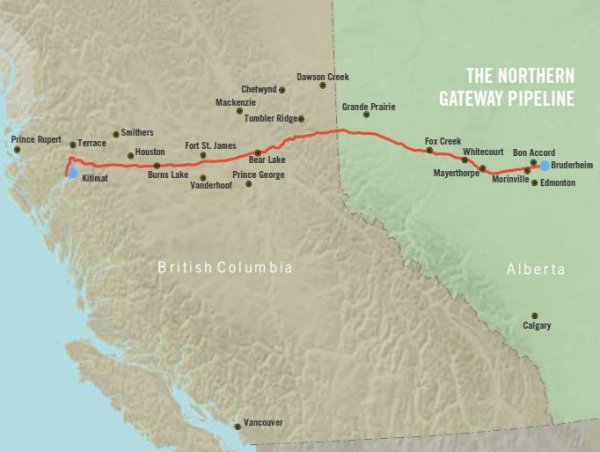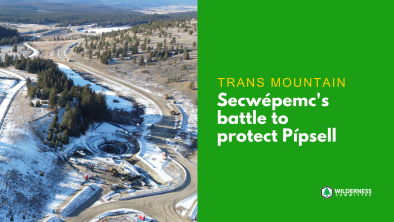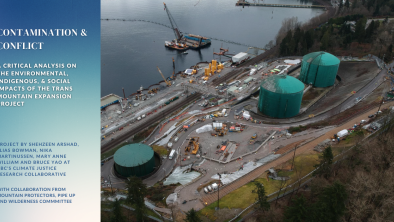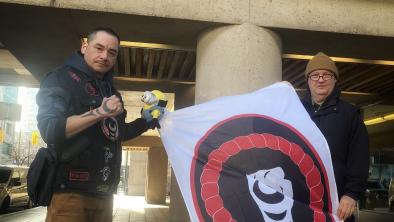Enbridge committed to controversial Canadian pipeline project
Xinhua Daily (China)

Enbridge Inc. has "time on its side" to build its Northern Gateway pipeline, a company executive said Tuesday, despite a tidal wave of opposition to the proposed project to export Canadian oil to Asian markets and California.
Speaking at the British Columbia (B.C.) Chamber's Energy Summit in Vancouver, Janet Holder, Enbridge executive vice president for western access, said the 1,177-km pipeline to transport oil from Alberta's oil sands to Kitimat, a port on Canada's northwestern coast, is "definitely not dead."
The proposed 6-billion-Canadian dollar (6.1-billion-U.S. dollar) project is currently being assessed by a joint-review panel comprised of two federal regulatory bodies. The panel is expected to make a decision whether to approve the pipeline by the end of 2013, leaving the Calgary-based Enbridge hopeful it can sway public sentiment.
"We are still investing a lot of time, effort and money in this project,so are funding partners. And we're in it here for the long haul and we're going to do what's necessary to make this project happen," Holder said.
"We still have two years before we have a decision. We got time to continue to consult with first nations (aboriginals), continue to work with communities along the right away. The project is definitely not dead."
Holder said there was a "large amount of support" for the project as the company has undertaken consultation with more than 17,000 people to date. The company also said it has 60 percent support of unnamed aboriginal groups living within 80 km of either side of the proposed pipeline route in B.C. and Alberta.
Ben West, communication director for the Wilderness Committee environmental group, said such a claim goes against the 130 first nations groups in B.C. and Alberta who earlier signed the Save the Fraser (River) declaration, vowing that they would never support a pipeline going through their traditional territory.
"If this deal is not dead it's on life support," said the Vancouver-based West, noting if one aboriginal group objected to the pipeline running through its land it would jeopardize the project.
"To put in real simple terms, it's a bad investment. You know this really is just not the right way to move forward for any of us around the Pacific region," he said. "If we're going to be serious about doing something about climate change, we need to partner and work together to actually find solutions that are sustainable and will work for everybody in the long run."
Despite the support of the ruling Conservative party in Ottawa, the pipeline faces opposition from the B.C. government who has set out five conditions to be met, namely more financial benefits and environmental assurances if the project is going to go through the province.
Holder said there has been a lot of misinformation spread that the project can't be built in a safe, environmentally-sound way. She added that the construction of the pipeline was "vitally important to B.C. and Canada."
"I think the key is there is about 800 million (Canadian) dollars worth of goods and services that will be the benefit to northern British Columbia alone just during the three year construction period. Besides, the tax revenue to the B.C. government is expected to be 1.2 billion (Canadian) dollars, and that's just a part of the benefits. Also we believe there will be a billion dollars of benefits to first nations."
With the Northern Gateway project structured as a limited partnership -- Enbridge owns 50 percent and 10 private investors, including China's Sinopec, holding the remaining stake -- Holder said the opposition to the project and its uncertain future is not scaring off potential investors.


